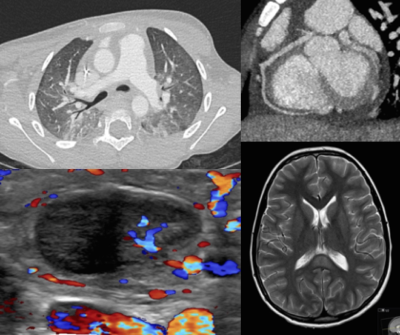Weekday Course
Immune System: Friend & Foe
Joint Annual Meeting ISMRM-ESMRMB & ISMRT 31st Annual Meeting • 07-12 May 2022 • London, UK

| Immune System I | |||
| 14:45 | Basic Concepts & Emerging Developments in Immunotherapy
Yvonne Saenger
|
||
| 15:15 | Challenges of Assessing Response to Immunotherapy in Body Cancers
Priya Bhosale
This presentation will discuss the imaging findings of tumors post treatment and the different response criteria that are used in assessing tumor response.
|
||
| Immune System II | |||
| 15:45 | Immunotherapy for Treatment of Multiple Sclerosis & the Role of Myelin-Sensitive MRI Video Unavailable |
||
| 16:15 |  |
Post-Infectious Inflammatory Syndromes in the Pediatric Patient
Shema Hameed
This presentation will include a brief overview of the variety of recognised post-infectious inflammatory disorders in children, and will focus on the novel post COVID-19 entity termed Paediatric inflammatory multisystem syndrome - temporally associated with SARS-CoV-2 (PIMS-TS) in the UK/EU and Multisystem inflammatory syndrome in children (MIS-C) in North America. The multi-system, multi-modality spectrum of imaging findings will be reviewed, along with a discussion of long-term outcomes from what we know so far.
|
|
The International Society for Magnetic Resonance in Medicine is accredited by the Accreditation Council for Continuing Medical Education to provide continuing medical education for physicians.